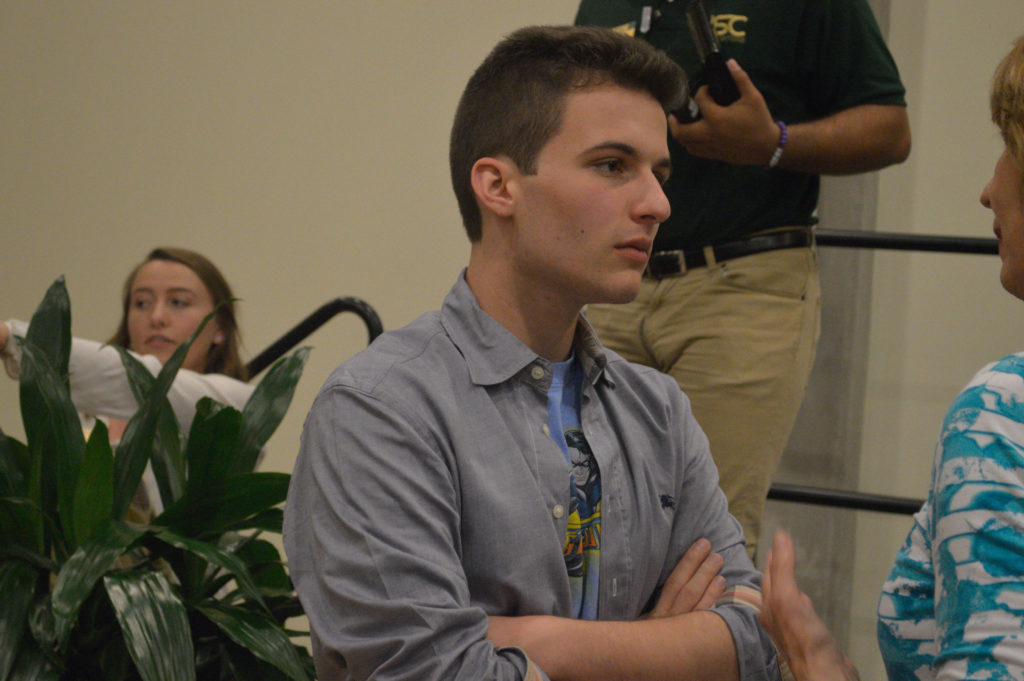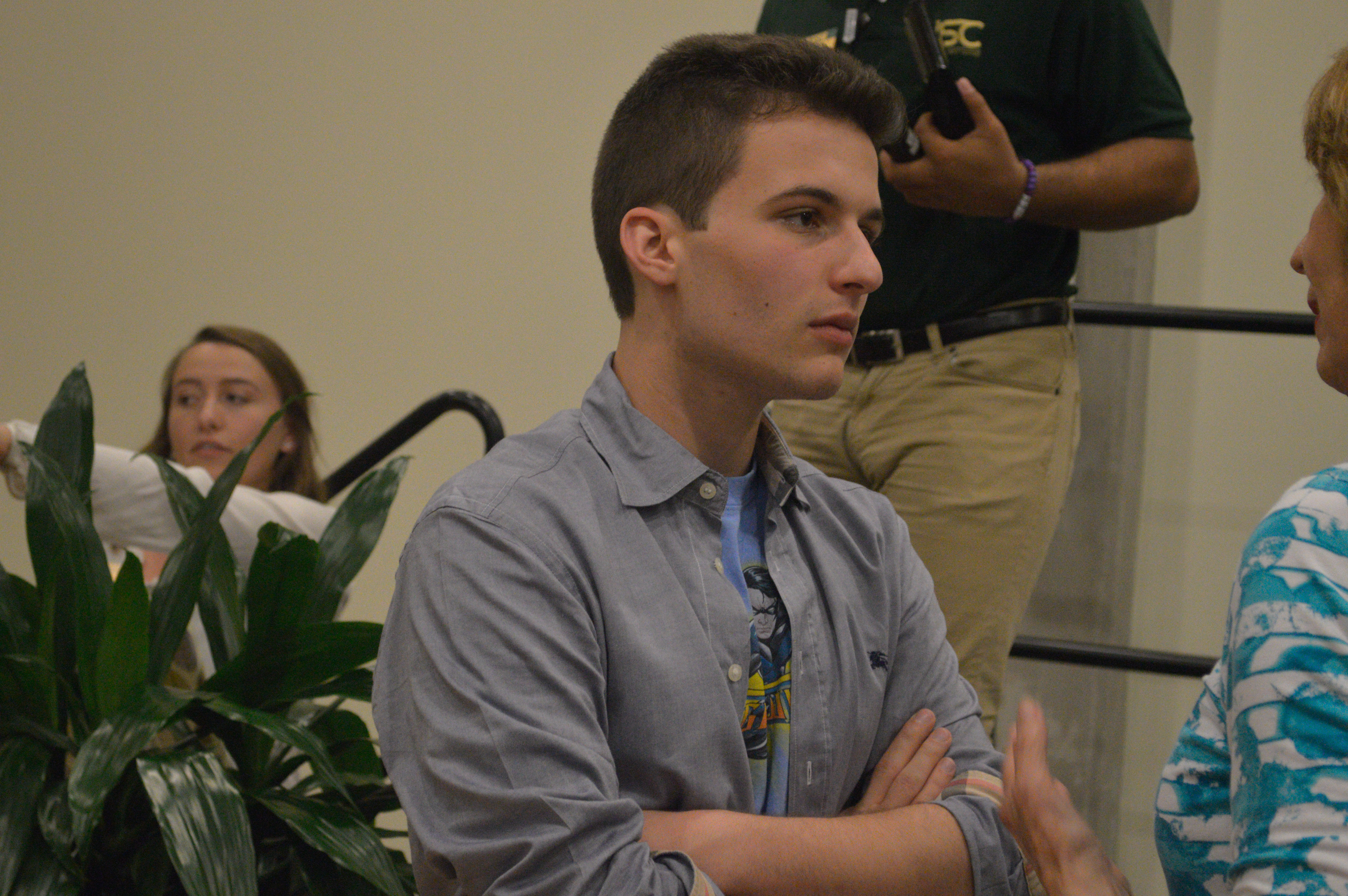
By Anna Bryson
Cameron Kasky, a survivor of the 2018 Stoneman Douglas shooting, stepped away from the group he co-founded, March for Our Lives, in September to pursue advocacy from a non-partisan standpoint.
He wants to have conversations with people who disagree with his views on gun control instead of fighting with them, he told a group of USF St. Petersburg students March 26.
“I’m a liberal, and I think that a lot of liberals have a big issue with this. We look at conservatives as just the worst human beings in the entire world and we treat them like they are some sort of lesser being and that makes us look really bad,” he said.
“I’m a Democrat; I think that should be the party of love. And when you look at people who disagree with you, and you treat them like they are sub-human just because they like guns, or they don’t like abortions, it’s going nowhere.”
Kasky, 18, became a nationally recognized public figure through news interviews after the shooting. He said he didn’t want the news coverage to consist of crying moms and no action.
“I didn’t want a single person to get up in front of the camera and talk about anything but what we can do to stop this next one from happening,” Kasky said.
He said the Stoneman Douglas shooting was one of the most preventable shootings in U.S. history.
“We had countless opportunities to stop this kid before he took 17 lives,” he said. “We can’t un-shoot up a school. We have to stop students who are clearly showing that they have violent tendencies, who are carving swastikas into desks and are sending harmful messages to other students.”
The police were called on the shooter 40 times before he killed, Kasky said, but no action was taken. The student wasn’t expelled because the school didn’t want its graduation rates to take a hit, according to Kasky.
Weeks before Kasky spoke at USF St. Petersburg, two Stoneman Douglas students committed suicide.
“I face mental health issues all the time and it’s awful,” Kasky said. “Depression is a brutal, unforgiving thing, and it grabs your heart and pulls it down (and) makes you not see a future.”
“It makes you just feel like you’re in some sort of never-ending rut where nothing will ever get better, and people need to know that that’s okay and that people feel like that all the time.
“Suicide doesn’t have a look. Depression doesn’t have a look. Some of the happiest looking people in the world are some of the people who are going through the worst thing.”
Kasky became more well-known after confronting Sen. Marco Rubio, R-Fla., at the “Stand Up” town hall session sponsored by CNN in February 2018, a week after the shooting.
“Can you tell me right now that you will not accept a single donation from the NRA?” Kasky asked him.
Rubio responded, “I will always accept the help of anyone who agrees with my agenda.”
“I do know that I went up there that day with less constructive goals than I should have,” Kasky said. “I mean, it was seven days after a school shooting; I didn’t expect myself to be up there composed, asking responsible questions.
“But that’s a great example of somebody going up there, not to come to some sort of understanding, but just to make someone look bad.”
Since then, Kasky has changed his advocacy tactics to be less confrontational and more understanding of opposing viewpoints.
“You can not inherently believe that just because somebody disagrees with you, they’re a bad person,” he said. “Because once you start to think like that, you can become a repressive individual, and you become somebody who refuses to open himself up to new ideas.”
He still loves and supports the March for Our Lives group, he said, but he believes that opening up conversations and working with people of different viewpoints is a more productive route. He hasn’t changed his political views or his stance on gun regulations.
“I could go around and tell people that they’re a bad person for not supporting gun control; I can do that very easily, probably get a lot of exciting Twitter stuff going on,” he said. “But maybe I could reach out to those people and at least talk to them about the issue. So we can agree to disagree.”



